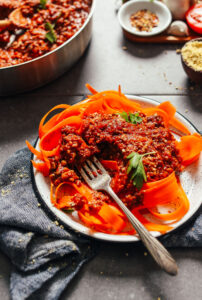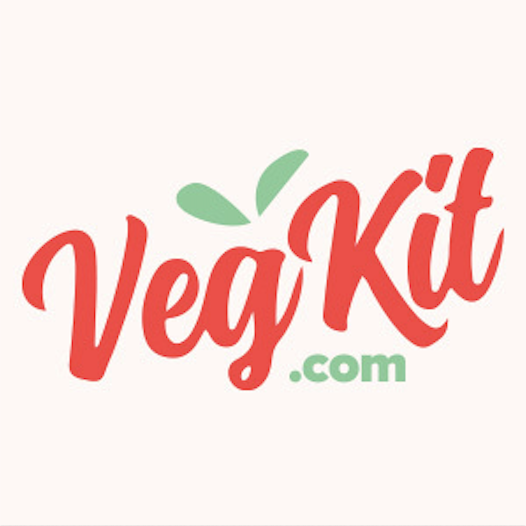
Article

Most of us would agree that if we want our planet to sustain life for generations to come, we need cleaner energy to fuel our cars, cities and homes. But what about the food we use to fuel our bodies? As it turns out, this may be the biggest problem of all.
There’s no shortage of research warning that our appetite for meat and dairy is consuming the planet – quite literally – using up vast amounts of land and water and threatening the survival of many unique and precious species of wild animals. But there’s good news – whether you eat veg for a meal, a day, a week or a lifetime – every time you swap an animal-based meal for a plant-based one, you’re helping create a more sustainable food system.

A whopping 80% of greenhouse gas emissions from our food system can be traced back to the production of animal-related food such as meat, dairy and eggs. And these emissions are responsible for around 14% of annual human-induced emissions, nearly as much as all the world’s cars, trains and planes combined!
And direct emissions from farming are just one part of the story. The carbon sinks that would naturally capture and store carbon dioxide – our forests – are being cut down to make way for animal farming. So, these harmful emissions – some 4 billion tonnes a year – are being released back into the atmosphere.
So, how much difference can one meal make? Well, it turns out a lot. According to this handy calculator, if you currently eat beef a couple of times a week and swap it for say, beans (think a hearty lentil bolognese or veggie lasagne), then over the course of a year you’ll be cutting your greenhouse gases from an eye-watering 604kg to a boast-worthy 7kg!

While 820 million people around the world go hungry, one-third of the planet’s cereal harvest is fed to farmed animals, who require a huge caloric intake. This grain would be enough to feed 3 billion people.
Our allocation of fresh water, our most precious resource, paints a similar picture. Sadly, one billion people on our planet struggle to access clean water. Yet one-third of global fresh water supply is used in meat, egg, and dairy production.
There’s this stat doing the rounds that if you eat plant-based for a week you will save the same amount of water as not showering for 6 months. Incredibly, it stacks up! So, sticking with the shower analogy, swapping a glass of dairy milk a day for a glass of oat milk will save around 42,000 litres of water over 12 months – the equivalent of 649 showers!
It seems like there are more nut and not-milk options being added to the supermarket shelves every single day, so being deliciously dairy-free has never been easier. Explore our shopping guide or check out these tips for some dairy-free inspiration to suit every occasion.

Yes, an ocean dead zone is as grim as it sounds. It’s when oxygen levels have dropped so low that marine life from fish to turtles to sharks simply cannot survive. One of the main culprits is pollution from land-based animal farming – all that waste and fertilizer has to go somewhere, and sadly that ‘somewhere’ is directly into our oceans and other waterways.
There are hundreds of ocean dead zones around the world, some spanning thousands of square kilometres, and all are devoid of the life these delicate ecosystems once sustained.
Industrial farming within our oceans is also wreaking environmental havoc. Many people see eating fish as a more sustainable food choice, but the reality is that farmed fish have quite a high eco-footprint. As many fish (like salmon) are farmed in sea cages in the open ocean, the prevalence of diseases in fish farms is a serious threat to ocean ecosystems. That’s because disease can spread into surrounding waters and infect wild fish populations. And just like the farming of land animals for food, fish farming is highly inefficient, with farmed fish eating more wild-caught fish than what they produce.
If you’re hankering for something ocean-inspired without any of the fishy business, then try our delectable beer-battered tofu with tartare sauce or explore some of the creative plant-based alternatives to fish that are readily available in major supermarkets.

It’s a hard to imagine a world where a koala, orangutan, gorilla or even a butterfly didn’t exist – but this is the future we’re facing without a major transformation of our food system.
We’re losing 137 species of plants and animals every single day, with a recent report by Chatham House warning that the way food is produced threatens 24,000 of the 26,000 species at risk of extinction. This same report warned that biodiversity loss is as big a threat to life on earth as climate change.
The leading cause of species extinction is loss of habitat due to land clearing. And the vast majority of land clearing is to graze cattle for the beef and dairy industries, and to grow crops to feed factory-farmed animals like pigs and chickens.

Our modern food system is not only destructive, but highly inefficient. Consider that animal agriculture takes up 77% of all agricultural land on Earth despite providing only 17% of humanity’s food supply. To break it down further, it takes almost 100 times as much land to produce a gram of protein from beef or lamb, versus peas or tofu. And once more, to eat a couple of lamb chops each week for a year requires a parcel of land the size of 12 tennis courts – exponentially more than plant-based alternatives.
Highlighting the environmental recovery that’s possible by rethinking what we eat – the Chatham House report also noted that a switch from beef to beans in the diets of the entire US population could free up 42% of US cropland. This land could then be used for other purposes such as ecosystem restoration or more nature-friendly farming. Smoky beans anyone?
There is now an abundance of research confirming that avoiding meat and dairy is the biggest positive impact we can have on our planet. And that every single meal makes a difference.
So, whether you’re swapping dairy for soy in your morning coffee, embracing meat-free Monday or every day, know that you’re helping pave the pathway to a kinder, healthier and more sustainable future for everyone. ![]()


VegKit was launched in 2018 as an initiative of Animals Australia. We offer support for those wanting to eat more plant-based food, because it’s gentler on the planet and on animals. And it can be a whole lot gentler on your own body too! Stick around, and we’ll share with you inspiration, tips, and recipes for your plant-based journey :)